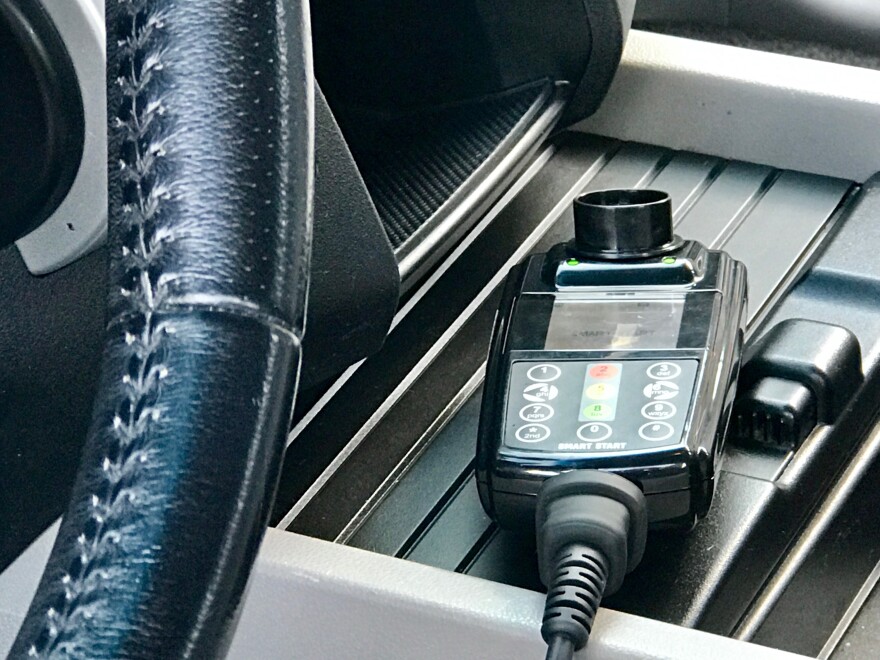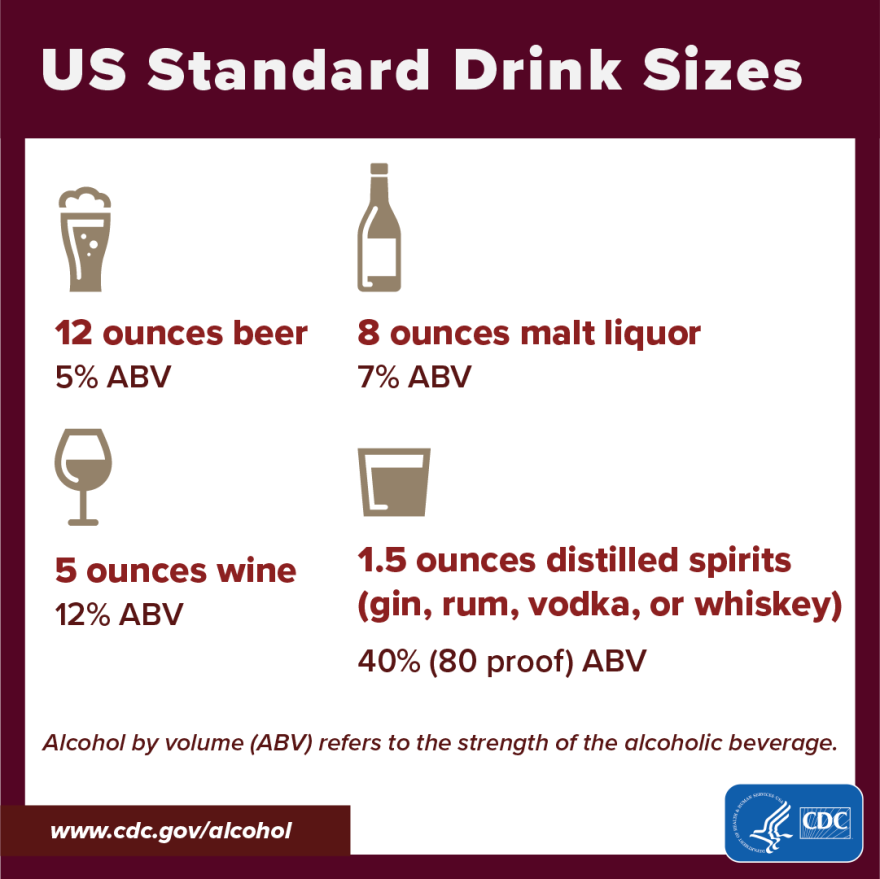The Road Ahead is a project by LehighValleyNews.com on traffic and transportation issues in Lehigh and Northampton counties. This is PART THREE of the series, which includes this related story:
Rise in DUIs: Impaired driving among top public safety threats
ALLENTOWN, Pa. — Dozens of DUI defendants cycled through a Lehigh County courtroom one morning this month.
Some learned their fates after often-protracted legal processes, and others agreed to new dates to continue theirs.
Each time a defendant stands before a judge to be sentenced on impaired-driving charges, prosecutors hope it will be their last time in that situation.
A pretrial diversionary program called Accelerated Rehabilitative Disposition, more commonly known as ARD, is meant to boost those odds.
Most first-time DUI offenders — and some facing their second DUI charge — are eligible for ARD, which offers them the opportunity to avoid jail time and erase the charge from their records if they complete a series of tasks.

The program, which can span up to 12 months, includes a period where drivers are required to serve their license suspension, pay fines and court costs, and complete the Alcohol Highway Safety School and any recommended drug or alcohol treatment programs.
DUI defendants' day in court
Many plead guilty to enter ARD, like two of four defendants who were sentenced as a group March 2 in Courtroom 2C in Allentown.
The cohort included a 76-year-old man facing his fifth DUI charge; a 33-year-old man who prosecutors said was “very lucky” to have not more severely injured a motorcyclist; and two first-time DUI offenders — a 30-year-old mother of five and 25-year-old warehouse worker.
“We all have difficulties. It’s not an excuse for what you did. ... For the past 50 years, you haven’t learned your lesson."Lehigh County Judge Thomas Caffrey while sentencing a man after his fifth DUI conviction
Lehigh County Judge Thomas Caffrey questioned each about their charges and what led them to get behind the wheel while impaired.
“I thought I could make it home. I was wrong. I was dead wrong,” the 76-year-old man told Caffrey.
His attorney said his client suffers from severe pain and believes his body “is failing him” when he asked the judge for leniency in sentencing.
“We all have difficulties,” Caffrey said. “It’s not an excuse for what you did.”
“For the past 50 years, you haven’t learned your lesson,” he told the man, who also was convicted of impaired-driving offenses in 1972, 1978, 1998 and 2002.
Caffrey ordered all four to pay court costs and fines assessed by BAC, or blood alcohol concentration; undergo evaluations for potential drug and alcohol treatment; and seek or maintain employment.
They also were ordered to surrender their licenses once they are formally suspended by the Pennsylvania Department of Transportation.
Each must pay fines of $300 to $1,000, while one also must pay $1,000 in restitution, Caffrey ordered.
Two were taken to the Lehigh County Jail immediately after their sentencing, while both first-time offenders registered with the probation office and walked out of the courthouse that afternoon.
Those who avoided jail time will likely be eligible for ARD, and with it, record expungement.
ARD requirements
If offenders successfully complete all ARD requirements, they can finish the program in six months, Northampton County Deputy District Attorney Joseph Lupackino told LehighValleyNews.com.
Most must serve their license suspension before starting Alcohol Highway Safety School classes, which requires participants be legally certified to drive.
Northampton County’s Alcohol Highway Safety School requires in-person attendance twice a month and usually has 30 to 50 people.
“I don’t think I could put a number on it."Northampton County Assistant District Attorney Joseph Lupackino on the success rate of the ARD program
The court sets no additional regulations, Lupackino said, though state law requires first-time offenders with high BAC levels, repeat offenders and those who refuse testing to install and maintain an ignition interlock device in their vehicles.

In Northampton County, the Alternative Sentencing Program serves as another second-chance program for impaired drivers.
Most ASP participants are DUI offenders with BACs in the highest tier, and about half have previously completed ARD for a first offense, Lupackino said.
The ASP program also takes place twice a month and typically includes eight to 12 people, he said.
New criminal charges can jeopardize DUI offenders’ participation in the ARD and ASP program, Lupackino said.
'Designed to punish, but ... '
The success of the ARD program is hard to gauge, according to Lupackino.
“I don’t think I could put a number on it,” he said, noting a percentage of people who complete the program will again drive impaired.
It’s also hard to separate the program’s impact from that of drug and alcohol treatment, he said.
The combination of education and treatment is meant to give people “a little bit more insight [into] their own personal addictions or issues,” Lupackino said.
The ARD program is “designed to punish, but maybe not punish somebody as severely,” he said.
Repeat DUI offenders “need treatment for all of their disorders and only then do some recover."James Fell, DUI research scientist
Options like ARD and ASP are based on the state’s tiered approach to drunk driving established by Act 24, which lowered the legal limit of alcohol from a BAC of .10 to .08 in Pennsylvania.
It was signed into law in 2003, scaling back strict punishment and license suspensions in favor of rehabilitation. It has remained the primary guideline for penalties, terms of suspension, fines and other requirements.
But “Deana’s Law,” signed in 2022, allows judges to impose harsher penalties for some repeat DUI offenders.
Deana’s Law increases the maximum fine and prison sentence for anyone who commits a DUI and refuses a breath or chemical test; posts a BAC of .16 or higher; drives under the influence of a controlled substance; or has two or more DUIs.
The law was named after Deana Eckman of Delaware County, who was killed in 2019 by a drunk driver with five prior DUI convictions. It aims to keep repeat offenders from driving while impaired by drugs or alcohol, but some experts say it’s not as simple as passing another law.
“Repeat and high-BAC drivers have always been a problem in the U.S.,” according to James Fell, a principal research scientist who studies traffic safety at the independent research organization NORC at the University of Chicago.
“It is very difficult to change their behavior. While many think jail is the solution, it only keeps them off the roads during the time they are incarcerated,” Fell said, noting that could be a short period of time.
“When they get out, they go right back to their bad behavior,” Fell said.
He said many repeat and high-BAC DUI offenders suffer from some type of “mental disorder” alongside an “alcohol problem.”
“They need treatment for all of their disorders and only then do some recover,” Fell said.
The BAC limit
Fell advocates for states to lower the drunk-driving threshold to match the BAC limit in Utah, where drivers can be charged with DUIs with a .05 BAC. The legal limit remains .08 in all other states.
He highlighted studies that show people’s ability to drive still is significantly impaired at .05.
Lowering the limit could reduce crashes by deterring more people from drinking and driving, Fell and other experts argue; they say it sends a message that the government is getting tougher on impaired drivers.
And statistics from Utah support the argument to lower the legal BAC limit.

Utah's fatal crash rate dropped almost 20% in 2019, the first year under the .05 BAC limit; fatal crashes decreased 5.6% that year across the rest of the United States, where the limit remains .08.
More than 22% of Utah drivers who drank alcohol reported changing their drinking and driving behavior once the 0.05 law went into effect, one study showed. Others highlighted there was no economic decline in alcohol consumption, tourism, and revenues at restaurants and bars in the state.
Alcohol-related traffic incidents do not always result in fatalities, Fell and other experts note.
But impaired drivers create numerous risks and cause many injuries to themselves, their passengers, other drivers, pedestrians and cyclists.
Courts try to 'strike a balance'
Police and prosecutors can take impaired drivers off the roads, but they can’t necessarily keep them from getting behind the wheel again.
Lehigh County District Attorney Gavin Holihan noted people charged with DUI maintain their licenses and can continue legally driving until they face a suspension as part of their convictions.
Only in “extreme cases” do magistrate judges revoke driving privileges as a bail condition, he said.
Police Lt. Bill Audelo, head of traffic and school safety for the Bethlehem Police Department, said drivers can face multiple first-time DUI charges if they are pulled over again before their first case is adjudicated.
“We’ve even had people arrested multiple times for DUI in the same night,” he said.
But officers often don't know if people have had previous interactions with police until convictions appear on their databases, Audelo said.
Repeat offenders in Pennsylvania could face felony charges, which would add significant jail time, lengthen license suspensions and increase other penalties.
Yet some benefit from “odd dispositions in [their] criminal history,” Audelo said.
An ongoing review of court records for active cases in the region by LehighValleyNews.com found cases where people with multiple DUI offenses pleaded guilty in exchange for significant reductions in charges or sentences.
Long-term license suspensions "might work in New York City, but not in Allentown, Pennsylvania."Lehigh County District Attorney Gavin Holihan
And while some states permanently revoke repeat offenders’ licenses, suspensions are capped at 18 months under Pennsylvania’s DUI laws for non-commercial drivers.
Courts are trying to “strike a balance” between punishing drivers for their actions and helping them recover from underlying issues that may have led them to drive impaired, according to the region’s chief prosecutors.

License suspensions are a major part of that struggle, they said.
The 76-year-old man sentenced this month after his fifth DUI would have faced a much longer license suspension in almost any other state. In some, he’d likely lose his license permanently.
New York this year enacted a “Forfeit After Four” law, which strips people of their driving privileges after four drug or alcohol-related convictions or incidents.
Holihan told LehighValleyNews.com he’d be “a little hesitant” to support longer license suspensions or lifelong bans.
“That might work in New York City, but not in Allentown, Pennsylvania,” Holihan said, adding a long-term suspension could further “marginalize” people trying to rebuild after a DUI conviction.
But license suspensions of 30, 60 or 90 days are “not unreasonable,” he said.
“That should set you straight,” Holihan said. “That should probably be the last time you drive drunk, and that’s what we want.”
COMING TOMORROW - PART 4: Only a handful of Lehigh Valley school districts offer driver education of some kind.



